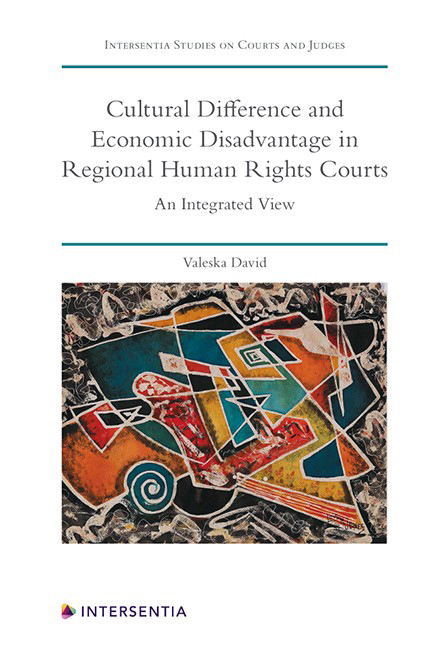Book contents
- Frontmatter
- Dedication
- Foreword
- Preface
- Acknowledgements
- Contents
- List of Cases
- Introduction
- PART I THEORETICAL FOUNDATIONS
- PART II RETHINKING CULTURAL DIFFERENCE FROM AN INTEGRATED PERSPECTIVE ON HUMAN RIGHTS
- PART III RETHINKING ECONOMIC DISADVANTAGE FROM AN INTEGRATED PERSPECTIVE ON HUMAN RIGHTS
- Conclusion
- Bibliography
- Index
- About the Author
- Frontmatter
- Dedication
- Foreword
- Preface
- Acknowledgements
- Contents
- List of Cases
- Introduction
- PART I THEORETICAL FOUNDATIONS
- PART II RETHINKING CULTURAL DIFFERENCE FROM AN INTEGRATED PERSPECTIVE ON HUMAN RIGHTS
- PART III RETHINKING ECONOMIC DISADVANTAGE FROM AN INTEGRATED PERSPECTIVE ON HUMAN RIGHTS
- Conclusion
- Bibliography
- Index
- About the Author
Summary
Several considerations have led this author to analyse the supranational adjudication of claims concerning cultural and economic difference. These are claims that basically seek protection against social devaluation, disadvantage or exclusion on account of the applicants ‘cultural and economic particularities (hereinafter also referred to as cases of cultural and economic ‘disadvantage’ , or cultural and economic ‘diversity’). The first reason to examine these cases relates to the specific challenges they bring to human rights courts. Three main challenges are worth highlighting here. The first one has to do with the fact that cultural and economic criteria are usually accepted as rational, pertinent and legitimate grounds for social organisation. For example, in most areas of regulation (whether public or private), it appears quite reasonable to establish restrictions or duties regarding dress, hairstyle, language and cultural knowledge. The same holds for the observance of economic requirements such as payment of fees, being employed and having a certain income. The practical implication of assuming the legitimacy of all this is that rights claimants may have a hard time in demonstrating the injustice of norms and practices that rely on those cultural and economic criteria. Judges may actually be inclined to uphold them or to view them as harmless. This problem can be summed up as ‘acute normalisation’. By this it is meant that cultural and economic differences and importantly, the set of privileges and disadvantages that accompany them, are internalised, accepted or otherwise presumed normal in a particularly acute way. Compared to other grounds of difference (e.g. gender, sex, race or nationality), the question may be seen as one of degree. While framing a claim as disadvantage based on gender, sex or race difference triggers some alarms, framing it as based on cultural or economic factors does not.
In the second place, questions of cultural and economic difference are oft en seen as something either too complex or too sensitive to be tackled by human rights courts. One line of argumentation emphasises that cultural and economic disadvantages are closely linked to complex structural, social and institutional issues. Complaints touching upon these issues should thus preferably be dealt with by means other than by seeking state liability in court, let alone in international courts.
- Type
- Chapter
- Information
- Cultural Difference and Economic Disadvantage in Regional Human Rights CourtsAn Integrated View, pp. xiii - xviiiPublisher: IntersentiaPrint publication year: 2020

